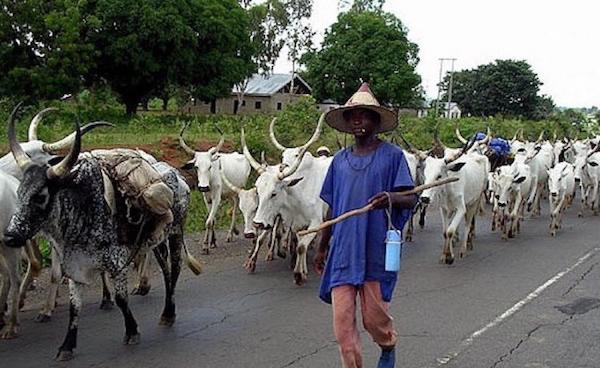News
Meat scarcity looms, as Fulani leaders threaten to stop sales of livestocks across Nigeria

Leaders of the several Fulani groups in Nigeria have threatened to stop the sales of their livestocks across the country over alleged incessant attacks on their members.
The Fulani leaders, arising from an emergency meeting in Abuja on Saturday, expressed their concerns over challenges faced by pastoralists, and issued the warning threatening to halt the sales of livestock nationwide if their grievances are not addressed by the Federal Government.
The meeting which was under the auspices of the Fulbe National Security Summit, organised by the Miyetti Allah Cattle Breeders Association of Nigeria (MACBAN), had leaders of Tabital Pulaaku International and Fulbe Global Development and Right Initiative in attendance and was presided over by the National President of MACBAN, Baba Othman Ngelzarma.
In a communiqué issued at the end of the meeting, Ngelzarma emphasised that pastoralists have been unfairly targeted for crimes in the country and called for an end to what he called the stereotyping and stigmatization of the Fulani herdsmen.
Ngelzarma alleged that the government had not made significant progress in addressing the root causes of the current conflict and the challenges faced by the Fulani community.
He added that the Fulbe pastoralists do not enjoy government patronage and are often made scapegoats for most atrocities.
He further noted that the Fulbe often suffer intimidation, segregation, molestation, and all forms of deprivation in the hands of security agents and vigilante groups, thus forcing them out of their occupational livelihood and ancestral homes.
Part of the communique reads:
“That the registered Fulbe socio-cultural groups and associations do not support any crime or criminality such as banditry, kidnapping and cattle rustling, as the Fulbe have also been the major victims.
READ ALSO:Committee recommends creation of livestock ministry to curb farmers/herders clash
“That the current security challenges confronting the country and especially the Fulbe communities ranging from banditry, kidnapping, socio-economic marginalization, youth restiveness, drug abuse, cattle rustling, and proliferation of arms should be addressed as a matter of urgency and the necessary need to integrate the Fulbe to the larger society through education and social interaction.
“That there has been resentment and wrong profiling of the Fulbe across the nation. The summit calls on the government to partner Fulbe socio-cultural associations/opinion leaders and security agencies to curtail the current trajectories.
“The summit opined that the Fulbe pastoralist will be compelled to stop selling livestock across the nation if immediate action to curtail the current challenges by all tiers of Government are not addressed.
“The summit noted the serious encroachment and dilapidation of grazing reserves throughout the country and the need to channel resources arnd preserve them in all states where they exist, this is necessary in the view of the intent of settling of the entire pastoralists in the reserves for ranching.
“The federal government should revise and adopt a non-kinetic approach to ending banditry, kidnapping and cattle rustling, as the kinetic ways used over the years have only achieved very little result.
“That the trend in social media is further fueling the conflict and current challenges of the Fulanis, unfortunately the social media is not regulated.
“The hate speeches in the social media targeted at the Fulanis should be addressed by the Government”, the communiqué said.
Join the conversation
Opinions
Support Ripples Nigeria, hold up solutions journalism
Balanced, fearless journalism driven by data comes at huge financial costs.
As a media platform, we hold leadership accountable and will not trade the right to press freedom and free speech for a piece of cake.
If you like what we do, and are ready to uphold solutions journalism, kindly donate to the Ripples Nigeria cause.
Your support would help to ensure that citizens and institutions continue to have free access to credible and reliable information for societal development.